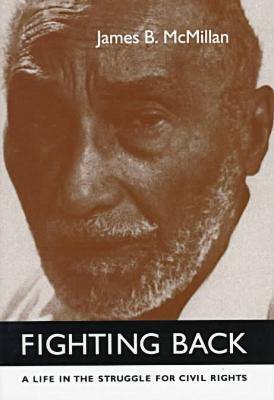Oral History Program
2 total works
Fighting Back is James B. McMillan's memoir of a life spent fighting racial discrimination in its many forms, and beating it. This is no plaintive litany of injustices: McMillan's style is to confront problems directly, deal with them, and move on. His story is personal, but it is also representative of the experiences of thousands of other African-Americans who stood and fought to achieve equality under the law. In 1955 McMillan moved his family to Las Vegas. He liked the place from the beginning - it was a twenty-four hour town, with lots of live entertainment, gambling, sunshine, and money - but he encountered the same type of racial discrimination there that he had lived with all of his life. He would not put up with it. Within a year of his arrival he was speaking out and attacking segregation in Las Vegas with such passion and vehemence that he was elected president of the local branch of the NAACP. Under his leadership, and following the example of civil rights activists in the South, the branch was soon taking direct, confrontational action to end overt segregation on the Las Vegas Strip; and in 1960, end it they did, in dramatic and surprising fashion. McMillan's story does not end with the desegregation of the Strip; he has continued to combat racism in all its guises, with considerable success. Following a penetrating and provocative analysis of affirmative action, bussing, the Black Muslims, and other current civil rights controversies, Fighting Back concludes with McMillan and his wife Marie reflecting on the hazards and rewards of their interracial marriage.
Through taped and transcribed interviews of people with historically significant experiences, the University of Nevada Oral History Program (UNOHP) is building an eyewitness record of Nevada's past. The UNOHP's oral histories are more than rich sources of information - they convey the human dimension of history that is so often absent from other forms of documentation. The program's collection contains over 60,000 pages of transcription on a wide variety of subjects, including ranching and mining, government and politics, the development of the casino gaming industry, Great Basin Indians, the experiences of ethnic and minority groups, and community history.

